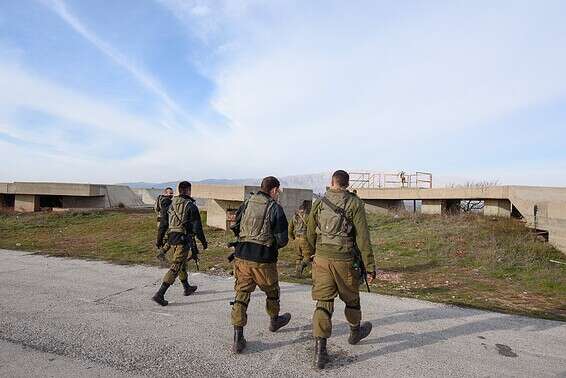
Apart from seizing the opportunity for a widespread attack in Trump’s last days in the White House, it is possible that this is an Israeli signal that the attacks will continue in the Biden era and that the Iranian establishment will not continue.
Documentation from Syria: Explosions in Deir a-Zor province
According to reports from the Syrian State News Agency, the IDF attacked from the air targets in Deir a-Zor in northeastern Syria and al-Bukhmal in eastern Syria. According to the same source, dozens were killed in the attack, some of them Iranians. Following the attack, the IDF is on increased alert for the possibility of a response.
The al-Bukhmal area is located on the border between Iraq and Syria, and is considered a major axis in the mainland corridor through which Iran transfers weapons to Syria. Deir a-Zour is also a site that has been attacked more than once, and is reportedly home to pro-Iranian militias and sites and factories used by Iran. The attack tonight is an attack in the depths of Syria, of a wide range of targets and sensitive, in part in light of the fact that the Iranian establishment has migrated east in light of Air Force operations.
Ganz on the border with Syria, yesterday // Photo: Tal Oz, Ministry of Defense
It seems that it is not for nothing that Defense Minister Bnei Gantz arrived yesterday at the 210th Division, which dominates the Israel-Syria border. During his visit, he said: “We have acted and will continue to act against anyone who tries to harm us from near and far, politically, militarily and economically.”
The attack tonight, it appears, is one of the most significant attacks attributed to Israel in Syria recently, and the fourth in number in the last three weeks.
Last Wednesday, an Israeli attack was reported in the Kiswa area, west of Damascus, not far from the Lebanese-Syrian border, in an area with sites belonging to pro-Iranian militias. A few days earlier an attack had been reported north of Damascus. In another case it was reported that there was another assault In the Masaif region in the northwest of the country. The attacks were aimed at weapons production sites, Hezbollah munitions depots, positions of the Syrian army and the “southern headquarters” operated by Hezbollah in Syria, as well as against elements in the Syrian air defense system. This is an unusual sequence of Israeli attacks in Syria, after in previous months there were fewer foreign reports of Israeli attacks in Syria. At least according to foreign publications, Israel attacks Syria once every three weeks or a month.

The Israeli attacks are carried out as part of what is known in Israel as the BMB (the war between the wars), which is intended to keep war at bay, and among other things to push the Iranians off Syria. Israeli activity over the past few years has managed to severely damage the Iranian establishment in Syria.
The increase in Israeli activity in Syria, it seems, is a double opportunity on its part. First, the attack takes place in the last days of Israel’s friendliest president in the White House, and before Joe Biden gets the keys to the Oval Office. Israel is confident that Baidan will continue to be friendly to Israel, but it is not inconceivable that he will dictate a different policy on the Iranian issue, and there may even be a potential US return to the very problematic nuclear deal for Israel. The revolution, Qassem Suleimani, about a year ago, and according to estimates in Israel and the West, Suleimani’s successor, Ismail Keani, is failing to step into his big shoes and lead like his predecessor the Iranian establishment in Syria, as well as other processes.

Along with all this, we will mention that the alert in Israel is maintained against the background of the assessment that Iran will try to avenge the death of the head of the Iranian nuclear program, Muhsan Fahrizda, at the end of November. The assassination of the senior scientist is attributed to the Israeli institution, although as usual Israel did not take responsibility for it. Preparations for the Iranian response are extensive, and include the possibility of harming Israeli targets abroad, as well as attempted remote attack by the Iranians – from Syria or even Iraq or Yemen. A response from Lebanon is also less likely. Not surprisingly, Israel recently deployed air defense systems Also in Eilat.